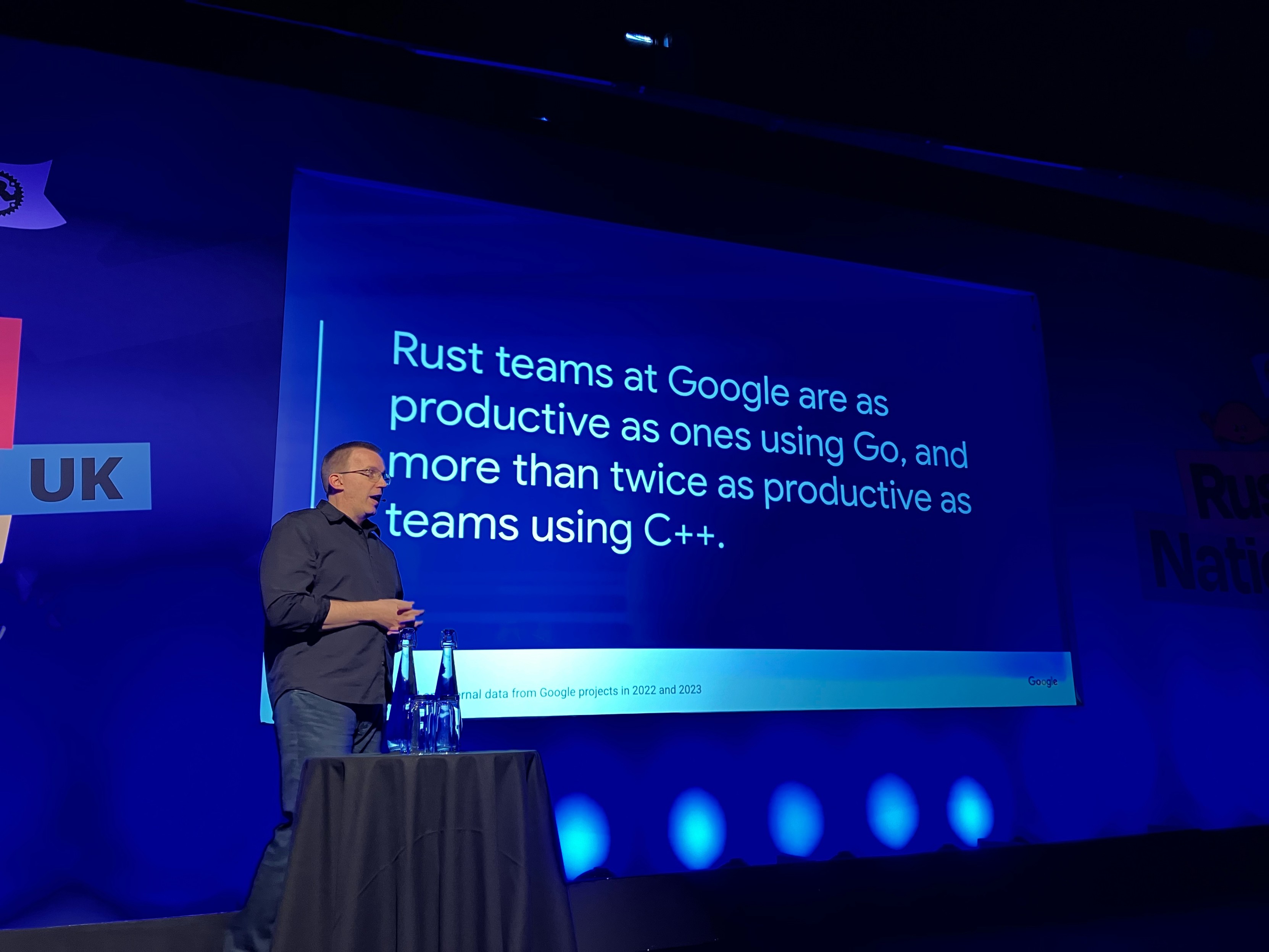this post was submitted on 28 Mar 2024
236 points (94.4% liked)
Rust
6137 readers
9 users here now
Welcome to the Rust community! This is a place to discuss about the Rust programming language.
Wormhole
Credits
- The icon is a modified version of the official rust logo (changing the colors to a gradient and black background)
founded 2 years ago
MODERATORS
you are viewing a single comment's thread
view the rest of the comments
view the rest of the comments

It’s a fair point that the speed of a language is not everything, but that’s not my point. My point is that with C++, the programmer must often play a puzzle of avoiding common pitfalls with e.g. memory allocation - on top of the actual problem the programmer is intending to solve. This hurts productivity, because there’s so much more to be mindful about.
Both Rust and Go are more free from this kind of extra mental overhead. The programmer can focus more attention on the actual problem. This is probably why Google has observed that both Rust and Go developers are twice as productive than C++ developers.
Go makes the trade off of using garbage collectors, which is easier for programmers to work with but comes with extra performance cost.
Having a simple and verbose language is not necessarily a downside. I’d rather take a simple language over all the syntactic sugar that comes with Perl.
This isn't entirely correct. Rust you do still need to worry about those same problems, it just gives you much better abstractions for modeling and thinking about them, and the tooling of the language "checks your homework" so to speak to make sure you didn't make any mistakes in how you were thinking about it. The upside is that you can be very specific about how you handle certain tasks allowing you to be super efficient with resources. The downside is that you do still need to worry about those resources at least a little bit. If you wanted to you could write Rust like Go by just making every variable a
Box<Arc<...>>and using.clone()like mad, but your performance is going to take a hit.Go (and other GCed) languages on the other hand, do entirely free you from having to worry about memory utilization in a general sense as the language runtime takes care of that for you. The downside is that it often does a poor job of doing so, and if you do run into one of the edge cases it's not so great at your tools for dealing with that are severely limited. Further it's very easy to accidentally screw up your memory usage and use far more than is necessary leading to excessive heap churn and serious performance degradation. Because the language makes it easy, even if what you're doing is wrong, and it lacks the tools to alert you to that problem before you trip over it at runtime.
As programmers, our bread and butter is abstractions. We use abstractions because in a very real sense what we do day to day if we removed all the abstractions would be a herculean effort that not even the best of us could manage for any period of time. Go's idea of "simple" is limiting the number of abstractions that the language provides, and so it's up to the programmer to use that small handful to construct more powerful ones. Every code base becomes a snowflake where each team rolled their own solution, or everyone just uses the same sets of libraries that provide the solution. You haven't removed the complexity, you've just shifted it out of the language and onto a 3rd party. It's better to have a consistent set of abstractions provided and maintained by the language and centrally developed by everyone, rather than a hodge-podge of abstractions by random 3rd parties.